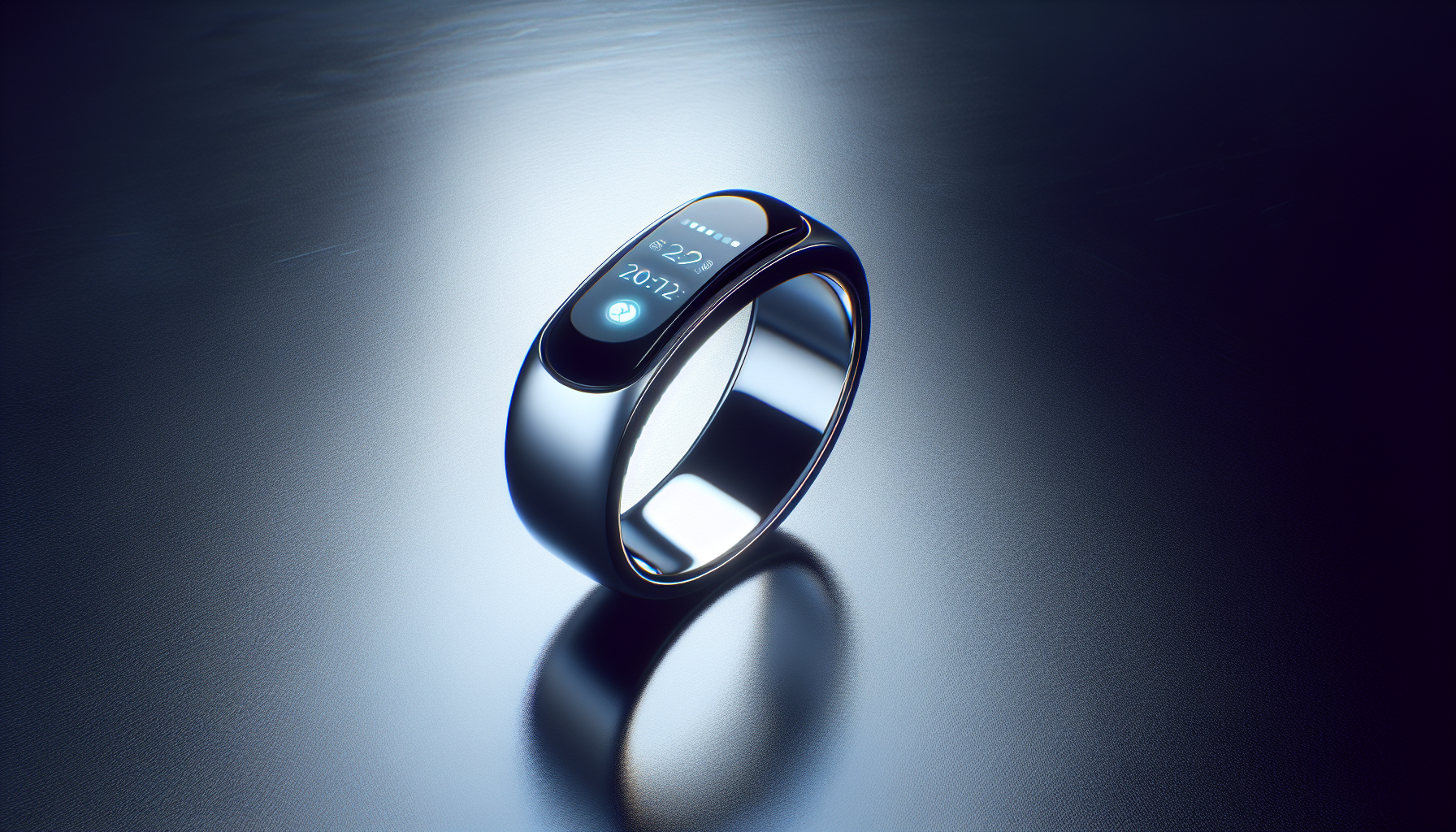 ## Samsung Reveals Its First Smart Ring: The Galaxy Ring
## Samsung Reveals Its First Smart Ring: The Galaxy Ring
Samsung has made its official foray into the smart ring market by unveiling the Galaxy Ring at the MWC, following an earlier teaser at the Galaxy S24 event. This launch signifies Samsung’s venture into a growing sector of wearable technology, with an emphasis on health and sleep monitoring.
The Competitive Landscape
Industry Reactions
The introduction of the Galaxy Ring has garnered responses from major players in the smart ring industry. Oura CEO Tom Hale commented, “New entrants in this space validate the category and motivate us to better serve our community.” Similarly, Circular co-founder and CEO Amaury Kosman showed enthusiasm, saying, “The entry of a significant tech player like Samsung into the smart ring market adds industry validation.”
These reactions capture a shared view among existing firms: while Samsung’s presence may bring challenges, it also affirms the market and could inspire further innovation.
Samsung’s Health-Focused Strategy
Integration with Existing Ecosystems
Samsung’s move into the smart ring segment strategically complements its current health products. The Galaxy Ring builds on health metrics and functionalities already available through Samsung’s smartphones and Galaxy Watch series. According to Samsung VP Hon Pak, “Samsung is uniquely positioned to lead this effort, given its extensive and diverse connected device ecosystem.”
The Galaxy Ring aims to streamline health tracking by effortlessly integrating with Samsung Health, providing users with a unified platform for monitoring various health metrics.
Emphasis on Sleep Monitoring
A notable feature of the Galaxy Ring is its emphasis on sleep monitoring. Its design makes it perfect for tracking sleep patterns, avoiding the discomfort some users feel when wearing a smartwatch to bed. Samsung suggests that users could wear their Galaxy Watch during the day and switch to the Galaxy Ring at night for all-encompassing health monitoring.
Technical Specifications and Features
Sensors and Metrics
The Galaxy Ring comes with sensors that track heart rate, movement, and breathing. These metrics contribute to what Samsung calls the “MyVitality Score,” offering personalized health insights based on multiple factors like sleep, activity, heart rate, and heart rate variability.
Samsung is also introducing a feature called “Booster Card,” aimed at helping users achieve health goals by providing actionable insights. These features will initially be available for the Galaxy Watch 6 before the Galaxy Ring’s release.
Prototypes and Release Schedule
The rings showcased at MWC are prototypes, but Samsung plans to launch the final product later this year, likely in time for the holiday season. Although specific details such as pricing and battery life remain undisclosed, Samsung is expected to be competitive with existing products like Oura.
Future Prospects and Market Impact
Subscription Models and Pricing
One uncertainty surrounding the Galaxy Ring is its pricing strategy. Currently, Oura charges a monthly subscription fee for its services, and there’s speculation that Samsung might follow suit. “The service is free for now, but we are considering different options,” Pak said at a press conference last year. “We may adopt a premium model or a subscription-based service in the future.”
Conclusion
Samsung’s entry into the smart ring market with the Galaxy Ring represents a notable step in wearable technology aimed at health and wellness. By leveraging its existing ecosystem and focusing on sleep monitoring, Samsung intends to offer a comprehensive health tracking solution. While questions about pricing and battery life remain, the Galaxy Ring is likely to have a substantial impact on the market.
Q&A Session
1. What is the primary focus of Samsung’s Galaxy Ring?
The main focus of Samsung’s Galaxy Ring is on health and sleep monitoring. It aims to provide comprehensive activity and sleep metrics by leveraging on-board sensors that measure heart rate, movement, and breathing.
2. How does the Galaxy Ring integrate with other Samsung devices?
The Galaxy Ring integrates seamlessly with Samsung Health, allowing users to track various health metrics on a unified platform. This integration builds on the health functionalities already available through Samsung’s smartphones and Galaxy Watch series.
3. What are some key features of the Galaxy Ring?
The Galaxy Ring’s key features include MyVitality Score for personalized health insights based on factors like sleep, activity, heart rate, and heart rate variability. Another feature, Booster Card, helps users achieve predefined health goals by providing actionable insights.
4. When is the Galaxy Ring expected to be released?
The Galaxy Ring is expected to be launched later this year, likely in time for the holiday season.
5. Will there be a subscription fee for using the Galaxy Ring?
While the service is currently free, Samsung is exploring various future pricing models, which could include a premium model or a subscription-based service, similar to Oura’s offering.
6. How does the Galaxy Ring compare to smartwatches?
The Galaxy Ring focuses more on health and sleep monitoring compared to smartwatches. Its form factor is particularly suitable for tracking sleep patterns without the discomfort associated with wearing a smartwatch to bed.
7. What impact will Samsung’s entry have on existing smart ring companies?
Samsung’s entry into the smart ring market validates the category and could spur innovation among existing companies. While it introduces competitive challenges, it also confirms substantial consumer interest in health-focused smart rings.